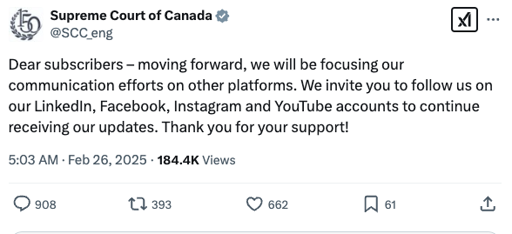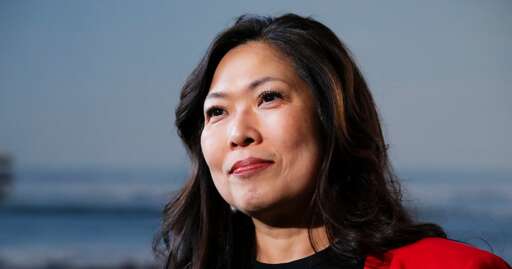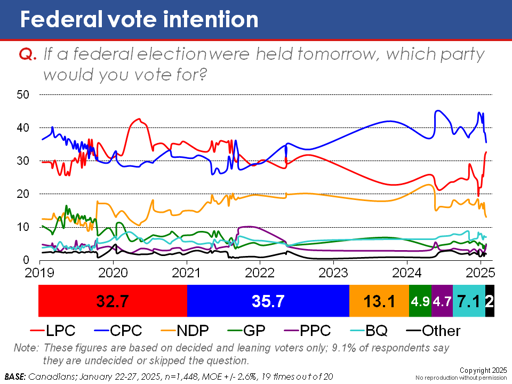

Value Subtracted
Have you ever considered that the Prime Directive is not only not ethical, but also illogical, and perhaps morally indefensible?
- 176 Posts
- 211 Comments


Treason
(2) Every one commits treason who, in Canada,
(a) uses force or violence for the purpose of overthrowing the government of Canada or a province;
(b) without lawful authority, communicates or makes available to an agent of a state other than Canada, military or scientific information or any sketch, plan, model, article, note or document of a military or scientific character that he knows or ought to know may be used by that state for a purpose prejudicial to the safety or defence of Canada;
( c) conspires with any person to commit high treason or to do anything mentioned in paragraph (a);
(d) forms an intention to do anything that is high treason or that is mentioned in paragraph (a) and manifests that intention by an overt act; or
(e) conspires with any person to do anything mentioned in paragraph (b) or forms an intention to do anything mentioned in paragraph (b) and manifests that intention by an overt act.
Basically, the US government would atually have to use force to overthrow the government, and we would have to be able to prove in court that Elon participated in those actions.


Immigration lawyer Gabriela Ramo says that under Canadian law, someone’s citizenship can only be revoked if it can be proven that they committed fraud or misrepresentation to obtain it.
“Before they could move to do this, they would need to introduce legislation, there would have to be amendments to the current Citizenship Act,” said Ramo, former chair of the Canadian Bar Association’s immigration section. “There’s no provision that would allow them to pursue revocation of citizenship of a Canadian birth, by virtue of his birth to a Canadian mother.”

- •
- www.cbc.ca
- •
- 7d
- •


This was a decent explainer. In a nutshell…
-
There are four categories of trade barriers in Canada: natural barriers such as geography, prohibitive barriers such as restrictions on the sale of alcohol, technical barriers such as vehicle weight standards and regulatory barriers such as licensing and paperwork requirements.
-
The 2017 CFTA was intended to cut down on some of these barriers, but all provinces and territories negotiated exemptions for various reasons, ranging from different safety regulations across provinces, to different language requirements, to industry protectionism.
It’s not clear right now which barriers the feds can unilaterally eliminate (and whether we agree with all of them), but I guess we’ll find out within the next week or so.


I don’t know if I agree with that assessment, but they do seem to have one writer who does nothing but write about how bad Carney is, and another who does nothing but write about how bad Freeland is.
From what I can tell, he would have to have acquired the citizenship fraudulently, and he didn’t.
There used to be a mechanism for the citizenship of people convicted of treason, spying, and terrorism offences to be revoked, but it was repealed in 2018.
I would like to think the rule of law still applies here.


I either missed this, or is has been added to the article:
Audio recording from Pearson’s air traffic control tower shows that Delta Air Lines Flight 4819 was cleared to land shortly after 2 p.m. and that the tower warned the pilots of a possible air flow “bump” in the glide path from an aircraft in front of it, according to a report from The Canadian Press.
So wake turbulence could be a factor.


School boards are also very vulnerable to this kind of coordinated attack:
Low voter turnout, [Take Back Alberta leader David Parker] said, is the key to victory.
“Albertans and Canadians are apathetic and lazy. They never show up,” he said during another October 2023 speech in Calgary. “You could take over every school board in this entire province."


If you want continuous music streaming (that is, it’s not on-demand, and you’ll listen to whatever’s playing), Stingray Music (formerly Galaxie) gets the job done.
I also use CBC Listen, primarily to stream their radio stations, but they’ve got loads of podcasts and music playlists as well.

- •
- www.cbc.ca
- •
- 1M
- •
B.C. judge orders WestJet to stop telling unhappy passengers the sky’s not the limit on delay claims
More of a set of bullet points than an actual “plan.”
Financial incentives, not penalties, to help consumers afford things like more energy efficient appliances, electric cars, and better home insulation.
Great - details, please. What kind of incentives, and at what stage of the buying process will they be applied?
Canada’s biggest emitters will contribute their fair share
Does this mean the existing carbon tax on industry will remain in place, or…something else?
Investments towards energy efficient buildings, electrified transportation, and more.
Meaninglessly vague without details.
Ensuring fairness for Canadian industries on the global stage, and better integrate with allies in the fight against climate change.
Word salad.

- •
- www.ekospolitics.com
- •
- 1M
- •


She did note that there are legitimate concerns about some parliamentarians potentially having problematic relationships with foreign officials, exercising poor judgment, behaving naively and perhaps displaying questionable ethics.
“But I did not see evidence of parliamentarians conspiring with foreign states against Canada,” the report concludes.
“While some conduct may be concerning, I did not see evidence of ‘traitors’ in Parliament.”
This is encouraging, but there needs to be a mechanism for these “problematic relationships” to be brought out into the public sphere (without it becoming a witch hunt).

- •
- www.ekospolitics.com
- •
- 1M
- •


The likely scenario is that, immediately upon Parliament resuming next month, the Liberals will immediately lose a confidence vote, triggering a snap election. The opposition parties have all stated that they will initiate a confidence vote at the earliest opportunity.
In the unlikely event that doesn’t happen, I imagine JT would remain on as PM until the mandatory election this fall. Were he to step down, he would probably appoint a sitting MP as interim PM.
As a fun(?) aside, Canada has had two PMs who served while members of the (unelected) Senate, and MacKenzie King and John Turner both briefly governed without a ministerial seat.




One thing to consider is hashtags. Each Lemmy posts automatically gets a hashtag that’s identical to the community’s @ name (so, this post has #canada). It might be worth poking around the Fediverse to see if there are existing hashtags that might make sense, and to give the communities those names, just to extend visibility beyond Lemmy.